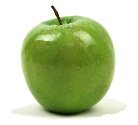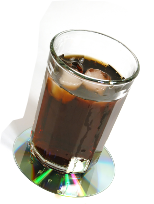



Helping you make healthy choices for you and your family
Aspartame
Aspartame is an artificial sweetener found in an ever-increasing number of foods consumed by adults and children alike. Just take a look at the labels on fizzy drinks, fruit squashes, flavoured mineral water, diet yogurts and desserts, sugar-free chewing gum, multivitamins and table top sweeteners, to name but a few. Yet, numerous studies have shown aspartame to be one of the most dangerous food additives on the market today.
Over 75% of the adverse reactions to food additives reported to the US Food and Drug Administration (FDA) are due to aspartame. Many of these reactions are very serious, resulting in seizures and death but also include:
Over 75% of the adverse reactions to food additives reported to the US Food and Drug Administration (FDA) are due to aspartame. Many of these reactions are very serious, resulting in seizures and death but also include:
|
|
Headaches/migraines
|
|
|
Muscle spasms
|
|
|
Weight gain
|
|
|
Depression
|
|
|
Insomnia
|
|
|
Vision problems
|
|
|
Hearing loss
|
|
|
Tinnitus
|
|
|
Memory loss
|
|
|
Heart palpitations
|
|
|
Loss of taste
|
|
|
Joint pain
|
Studies have also shown that aspartame can trigger or worsen:
|
|
Brain tumours
|
|
|
Multiple sclerosis
|
|
|
Epilepsy
|
|
|
Chronic fatigue syndrome
|
|
|
Parkinson’s disease
|
|
|
Alzheimer’s
|
|
|
Birth defects
|
|
|
Fibromyalgia
|
|
|
Diabetes
|

What is Aspartame?
Aspartame was discovered by accident in 1965 by a chemist from G D Searle Company who was testing an anti-ulcer drug and found it had a very sweet taste. It is 200 times sweeter than refined sugar.
It is made up of 3 chemicals: Aspartic acid, phenylalanine and methanol.
Aspartic acid makes up 40% of aspartame and is an amino acid which has been found to cause serious chronic neurological disorders. It acts as a neurotransmitter in the brain. Too much aspartic acid in the brain causes cell damage by over-stimulating the cells until they die. Our natural protection in stopping certain toxins like aspartic acid from passing into parts of the brain is not fully developed during childhood, which makes children more vulnerable to the effects of aspartame. The company who first developed aspartame, the pharmaceutical company, Searle, were warned as far back as 1971 that aspartic acid caused holes in the brains of mice. This was many years before aspartame was allowed on the market.
Phenylalanine makes up 50% of aspartame. It is an amino acid, like aspartic acid, which transmits impulses in the human brain. Studies have shown that increasing phenylalanine levels in the brain leads to a decreased level of the neurotransmitter, serotonin, which can lead to a variety of emotional disorders. People with a medical condition called Phenylketonuria are warned against ingesting any product containing phenylalanine and products containing this substance must contain a warning on the label.
Methanol makes up 10% of aspartame and is a wood alcohol poison. When a human consumes aspartame, it breaks down above 85ºC into its constituent amino acids and methanol. Methanol further breaks down into formaldehyde (which is a known carcinogen), formic acid and Diketopiperazine (DKP) which is a brain tumour agent and has also been shown to increase polyps in the uterus and change blood cholesterol levels. It’s worth noting that water boils at 100ºC, so if an aspartame sweetener is dropped into a freshly made cup of coffee, the temperature is likely to be above 85ºC, therefore allowing the aspartame to easily break down into these components.
When was Aspartame released on the market?
Aspartame was discovered in 1965 by James Schlatter, a chemist working for the pharmaceutical company, G D Searle. Shortly after that, tests began on animals to check its safety as an artificial sweetener. From that time onwards, there has been an appalling catalogue of fraud and deception by those with vested interests to promote aspartame as a “safe” artificial sweetener. Studies which were showing the dangers of aspartame had their funding withdrawn before completion. Other studies were shown to be conducted using very poor science with bad record keeping and insufficient controls to gauge results. Early studies were shown to have records falsified by omitting animals who had died or resurrecting them later on! In addition to this, people making decisions on aspartame at the FDA in the US, were later discovered to receive positions in companies involved with aspartame.
It is made up of 3 chemicals: Aspartic acid, phenylalanine and methanol.
Aspartic acid makes up 40% of aspartame and is an amino acid which has been found to cause serious chronic neurological disorders. It acts as a neurotransmitter in the brain. Too much aspartic acid in the brain causes cell damage by over-
Phenylalanine makes up 50% of aspartame. It is an amino acid, like aspartic acid, which transmits impulses in the human brain. Studies have shown that increasing phenylalanine levels in the brain leads to a decreased level of the neurotransmitter, serotonin, which can lead to a variety of emotional disorders. People with a medical condition called Phenylketonuria are warned against ingesting any product containing phenylalanine and products containing this substance must contain a warning on the label.
Methanol makes up 10% of aspartame and is a wood alcohol poison. When a human consumes aspartame, it breaks down above 85ºC into its constituent amino acids and methanol. Methanol further breaks down into formaldehyde (which is a known carcinogen), formic acid and Diketopiperazine (DKP) which is a brain tumour agent and has also been shown to increase polyps in the uterus and change blood cholesterol levels. It’s worth noting that water boils at 100ºC, so if an aspartame sweetener is dropped into a freshly made cup of coffee, the temperature is likely to be above 85ºC, therefore allowing the aspartame to easily break down into these components.
When was Aspartame released on the market?
Aspartame was discovered in 1965 by James Schlatter, a chemist working for the pharmaceutical company, G D Searle. Shortly after that, tests began on animals to check its safety as an artificial sweetener. From that time onwards, there has been an appalling catalogue of fraud and deception by those with vested interests to promote aspartame as a “safe” artificial sweetener. Studies which were showing the dangers of aspartame had their funding withdrawn before completion. Other studies were shown to be conducted using very poor science with bad record keeping and insufficient controls to gauge results. Early studies were shown to have records falsified by omitting animals who had died or resurrecting them later on! In addition to this, people making decisions on aspartame at the FDA in the US, were later discovered to receive positions in companies involved with aspartame.
|
|
In 1981, under pressure from the soft drinks lobby, the FDA approved the use of aspartame in dry foods and as a table top sweetener, ignoring the public complaints and the concerns of three FDA scientists, after their in-
|
|
|
In July 1983, aspartame was approved for use in soft drinks in the US. Three months later, the UK Ministry of Agriculture also approved aspartame even though the Department of Defence knew that aspartame was a neurotoxin and harmful to health.
|
|
|
In 1985, the manufacturer, Searle Company, was bought by Monsanto, better known today for promoting GM foods.
|
|
|
In 1989, the FDA received over 4000 complaints from people who described adverse reactions to aspartame but because it is listed as a “food additive”, the legal requirement for reporting adverse effects and safety monitoring is removed.
|
|
|
Now, aspartame is in over 4000 products worldwide and that number is increasing. It is consumed by 200 million people in the US alone and as far back as 1990, the market for aspartame in the UK was estimated at £800 million.
|
|
|
Between 1973 and 1990, the incidence of brain tumours in people over 65 had increased by 67% in the US. Brain tumours in all age groups had jumped by 10% in the same period but the greatest increase occurred during 1985 – 1987 and these figures continue to rise.
|
Are there any recent studies on Aspartame?
A recent study on rats in Italy has scientifically shown that aspartame is a multi-potential carcinogenic compound whose carcinogenic effects are evident at a daily dose of 20 mg/kg of body weight, much less than the current recommended intake for humans.
Another study in Greece has shown that ingestion of aspartame impairs learning and causes memory loss, and a Spanish study on rats has shown how ingestion of aspartame leads to the formation of formaldehyde in the body which is a known carcinogen.
To read each of these studies, click on the following links:
Another study in Greece has shown that ingestion of aspartame impairs learning and causes memory loss, and a Spanish study on rats has shown how ingestion of aspartame leads to the formation of formaldehyde in the body which is a known carcinogen.
To read each of these studies, click on the following links:
Websites about Aspartame
Click on the following links
Dorway to Discovery
Dr Mercola
Dr Hull
Natural News
For more information, see our recommended list of books by clicking here
Click on the following links
Dorway to Discovery
Dr Mercola
Dr Hull
Natural News
For more information, see our recommended list of books by clicking here
Videos about the Dangers of Aspartame
Click here to see a selection of videos about Aspartame. Prepare to be angry!
Other sweeteners
As more of the public become informed about aspartame and look for products without it, the manufacturers and food retailers are starting to take note.
Sainsburys is one supermarket giant who is phasing out aspartame in foods manufactured under their label, although they still sell foods manufactured by other companies whose products contain aspartame.
However, the companies who no longer use aspartame are turning to other artificial sweeteners, most notably Sucralose. This artificial sweetener also carries some health concerns and some of the websites mentioned above have information about Sucralose which is worth checking out.
Other artificial sweeteners that should be avoided are Saccharin and Acesulfame, both of which have scientific evidence of potential harm to health.
Many processed foods contain sugar in its various forms such as sucrose, glucose, dextrose, and fructose. It is difficult to avoid it but eating these foods just encourages a “sweet tooth”. Although, we need some sugar in our diet for our bodies to function, we should be able to receive sufficient amounts, naturally, from fruits and carbohydrates.
If you are looking for a natural sugar substitute to safely help you reduce the amount of sweetened foods or beverages that you currently consume , there are some options available to you.
As more of the public become informed about aspartame and look for products without it, the manufacturers and food retailers are starting to take note.
Sainsburys is one supermarket giant who is phasing out aspartame in foods manufactured under their label, although they still sell foods manufactured by other companies whose products contain aspartame.
However, the companies who no longer use aspartame are turning to other artificial sweeteners, most notably Sucralose. This artificial sweetener also carries some health concerns and some of the websites mentioned above have information about Sucralose which is worth checking out.
Other artificial sweeteners that should be avoided are Saccharin and Acesulfame, both of which have scientific evidence of potential harm to health.
Many processed foods contain sugar in its various forms such as sucrose, glucose, dextrose, and fructose. It is difficult to avoid it but eating these foods just encourages a “sweet tooth”. Although, we need some sugar in our diet for our bodies to function, we should be able to receive sufficient amounts, naturally, from fruits and carbohydrates.
If you are looking for a natural sugar substitute to safely help you reduce the amount of sweetened foods or beverages that you currently consume , there are some options available to you.
|
|
Organic honey has been used for millennia and, in small amounts, can be beneficial to health. Manuka honey, in particular, from New Zealand has been found to have many health benefits -
|
|
|
Agave nectar from a cactus-
|
|
|
Xylitol is a natural sweetener most commonly derived from birch wood, which also has a very low glycaemic index and is therefore safe for diabetics. It is usually sold in granular form, making it hard to tell from white sugar. Xylitol’s health benefits have been known for years but most notably its ability to help repair minor dental cavities has led to its use in some dental products. This is available from a number of health food suppliers. The best price we have found is from Goodness Direct or Xylitol Shop. They both sell 250gm and 1kg bags of xylitol.
|

Statement from a respected doctor
Dr Joseph Mercola, the well-respected nutrition and health researcher is no lover of aspartame. He stated:
“In 1991, the National Institutes of Health listed 167 symptoms and reasons to avoid the use of aspartame, but today it is a multi-
“The FDA and Centers for Disease Control continue to receive a stream of complaints from the population about aspartame. It is the only chemical warfare weapon available in mass quantities on the grocery shelf and promoted in the media. It has also been indicated that women with an intolerance for phenylalanine, one of the components of aspartame, may give birth to infants with as much as a 15% drop in intelligence level if they habitually consume products containing this dangerous substance.”

| Your Health Your Future |
| Controversial Ingredients |
| Nutritional State |
| Parent and Child |
| Microwave Ovens |
| Recommended Books |
| Skin Absorption |
| Sodium Lauryl Sulphate |
| Propylene Glycol |
| DEA, MEA, TEA |
| Chemical Calculator |
| Fluoride |
| Aspartame |
| Fluoridation |
| Water Filtration |
| Planning a Pregnancy |
| Pregnancy Care |
| Post Pregnancy Care |
| Amazon Books |
| EBooks |
| About Us |
| Health Services |
